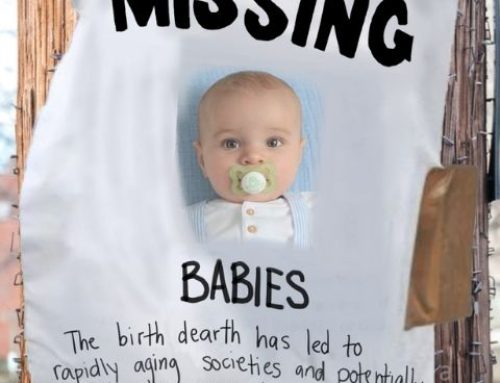 In her study, The Origins of Totalitarianism, the political philosopher Hannah Arendt notes that all declarations of human rights have overlooked the most essential human right of all, a right so obvious that it only emerged after massive numbers of stateless people appeared in the aftermath of World War II: without a nation state which could bestow upon them the rights enumerated by Enlightenment philosophes, these displaced persons lacked the right to have rights.
In her study, The Origins of Totalitarianism, the political philosopher Hannah Arendt notes that all declarations of human rights have overlooked the most essential human right of all, a right so obvious that it only emerged after massive numbers of stateless people appeared in the aftermath of World War II: without a nation state which could bestow upon them the rights enumerated by Enlightenment philosophes, these displaced persons lacked the right to have rights.
Arendt’s insight here is that human rights have become a closed system: those already within the system have the ability to claim them, but those outside the system are in perpetual peril. In our day, however, the closed system of human rights is being subverted from within. The most obvious and dangerous example of this is the violation of the right to life through abortion and through the continuing campaign to legalize euthanasia. These contradictions are, at least, covered by the fig-leaf logic of the “exception”: the unborn are put outside the definition of human rights so that those very rights can be violated.
Now, however, the logic of the exception is giving way to a more blatant “balancing act” that involves the clear diminution of one set of rights in favour of another. Canadian judges are now accepting the existence of a second tier of rights (and rights’ holders) which must be limited when they come into conflict with others.
The province of Saskatchewan has recently seen two related instances of this hierarchy of human rights at work. In revised guidelines relating to “unplanned pregnancy,” the Saskatchewan College of Physicians and Surgeons now advises its members that if they are not willing to refer women for abortions, they should refer them to a physician who will. Should can quickly become must. It is bad enough that the beliefs of pro-life doctors are seen as impediments to be circumvented through professional protocols. The College’s new guidelines relegate the deepest convictions of pro-life doctors to a position below their professional opinions. In essence, the College has put the professional in a place of precedence over the ethical; the most ancient maxim of medicine – “First do no harm” – is now seen an obstacle for pro-life doctors to acknowledge and overcome.
But more troubling is the recent ruling from the Saskatchewan Court of Appeal which recently ruled that marriage commissioners have no constitutional right to refuse to officiate over same-sex “marriages” on religious grounds. The court declared that the trauma that a same-sex couple would endure in not having their union solemnized by a marriage commissioner would violate their equality rights guaranteed in Section 15 of the Charter. Interestingly, the court had no difficulty in abrogating the freedom of religion guaranteed in Section 2 of that same document in reaching its decision. The hurt feelings of homosexual couples are of more value, in the eyes of the law, than the moral convictions of marriage commissioners.
The logical contortions explaining this are truly amazing. The court reasoned that, because marriage commissioners do not hold “formal positions in faiths or religious organizations” and are, instead, merely “civil officials who happen to have religious beliefs which do not embrace same-sex marriage,” they do not enjoy the same protections as their colleagues in the clergy. The religious beliefs of such civil officials hold the same status as private personal opinions which must be censored for the sake of their office.
Although this line of reasoning is dangerous and deeply flawed, and makes religious freedom the prerogative only of Church officials, it taps into the prominent (and equally misguided) logic of secularization: marriage commissioners must violate their consciences for the sake of secular neutrality. The court would make marriage commissioners martyrs for secular progress, imperiling their souls for the sake of the liberal state.
But it is crucial to notice why the court feels that the violation of the consciences of marriage commissioners is necessary. Such a sacrifice is required, the court reasoned, because the moral convictions of marriage commissioners matter less than the emotional lives of gays and lesbians. If a homosexual couple sought to marry and were refused, the court divined that such a response would be “very significant and genuinely offensive.” At the precise moment in which the much more important religious rights of marriage commissioners should have been upheld, the Court decided that, in its own imagined scenario, the psyches of would-be-wedded homosexuals mattered more than the souls of marriage commissioners.
The dangerous legal climate out of which such decisions emerge – and which they also strongly reinforce – could be described as “trickle-down tyranny.” With each legal battle in which religious rights contend, they are balanced into oblivion by any other competing set of rights. These recent cases in Saskatchewan prove that religious freedom in Canada falls outside the internal system of human rights: they are listed in the Charter, but are never deferred to or defended in law. Conscientious Canadians, therefore, must paradoxically argue for a set of rights which they ought to already enjoy; we must, in other words, now make the case for the right to have religious rights.




